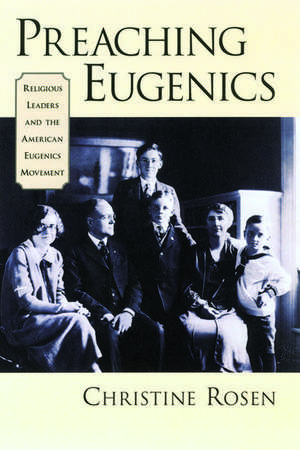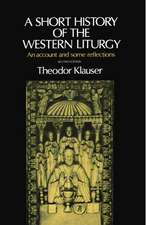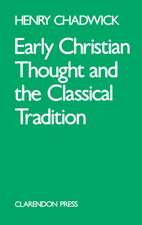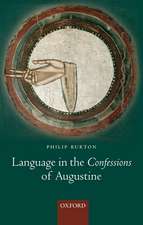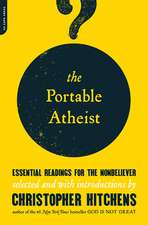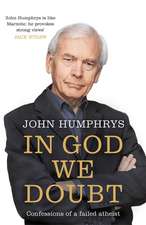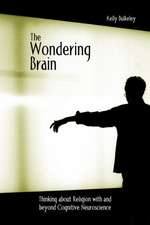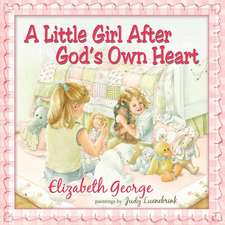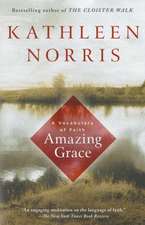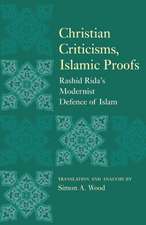Preaching Eugenics: Religious Leaders and the American Eugenics Movement
Autor Christine Rosenen Limba Engleză Hardback – 18 mar 2004
Preț: 492.86 lei
Preț vechi: 545.22 lei
-10% Nou
Puncte Express: 739
Preț estimativ în valută:
94.31€ • 98.82$ • 77.96£
94.31€ • 98.82$ • 77.96£
Carte tipărită la comandă
Livrare economică 01-07 aprilie
Preluare comenzi: 021 569.72.76
Specificații
ISBN-13: 9780195156799
ISBN-10: 019515679X
Pagini: 296
Ilustrații: 9 halftones
Dimensiuni: 167 x 241 x 26 mm
Greutate: 0.55 kg
Ediția:New.
Editura: Oxford University Press
Colecția OUP USA
Locul publicării:New York, United States
ISBN-10: 019515679X
Pagini: 296
Ilustrații: 9 halftones
Dimensiuni: 167 x 241 x 26 mm
Greutate: 0.55 kg
Ediția:New.
Editura: Oxford University Press
Colecția OUP USA
Locul publicării:New York, United States
Recenzii
"Henry Ford famously said that history is bunk. That statement was bunk, and no better evidence for that could be found than Christine Rosen's splendid, absorbing book Preaching Eugenics. She tells an almost unknown, but important, story: how American religion was caught up in the early-20th-century enthusiasm for eugenics. And too often the best people in the best churches. Science, even bad science, can capture religion, a point to keep squarely before our eyes as we move into a new era of genetic medicine. Her book is an insightful telling of how that earlier era of genetics gained credibility, and suggestive of how it might happen again." --Daniel Callahan, Director of International Programs, The Hastings Center
"Preaching Eugenics tells a story we need to hear today. We suppose that science and religion are at odds, but Christine Rosen recounts a story of considerable cooperation as the 'science' of eugenics developed in the early decades of the twentieth century. This is engagingly written narrative history at its best. Immersing us in an earlier time, it manages also to instruct us about the continuing lure of a eugenics that is today fostered less by government than by the desires of our hearts."--Gilbert Meilaender, Phyllis and Richard Duesenberg Professor of Theological Ethics, Valparaiso University
"Far from being the exclusive property of the lunatic fringe, eugenics in its heyday was as mainstream as Progressive social reform. Indeed, as Christine Rosen demonstrates in this absorbing study, the most theologically liberal and socially concerned members of the American clergy--liberal Protestants, Reform Jews, and even a few socially minded Catholics--were precisely the ones most likely to embrace eugenics, out of a conviction that applied science could realize their fondest hopes. Her surprising findings call into question the presumed linkage between science, liberal theology, and humane social policy, and raise questions of profound importance, not only to historians but to us all." --Wilfred M. McClay, SunTrust Chair of Excellence in Humanities, University of Tennessee at Chattanooga
"Preaching Eugenics tells a story we need to hear today. We suppose that science and religion are at odds, but Christine Rosen recounts a story of considerable cooperation as the 'science' of eugenics developed in the early decades of the twentieth century. This is engagingly written narrative history at its best. Immersing us in an earlier time, it manages also to instruct us about the continuing lure of a eugenics that is today fostered less by government than by the desires of our hearts."--Gilbert Meilaender, Phyllis and Richard Duesenberg Professor of Theological Ethics, Valparaiso University
"Far from being the exclusive property of the lunatic fringe, eugenics in its heyday was as mainstream as Progressive social reform. Indeed, as Christine Rosen demonstrates in this absorbing study, the most theologically liberal and socially concerned members of the American clergy--liberal Protestants, Reform Jews, and even a few socially minded Catholics--were precisely the ones most likely to embrace eugenics, out of a conviction that applied science could realize their fondest hopes. Her surprising findings call into question the presumed linkage between science, liberal theology, and humane social policy, and raise questions of profound importance, not only to historians but to us all." --Wilfred M. McClay, SunTrust Chair of Excellence in Humanities, University of Tennessee at Chattanooga
